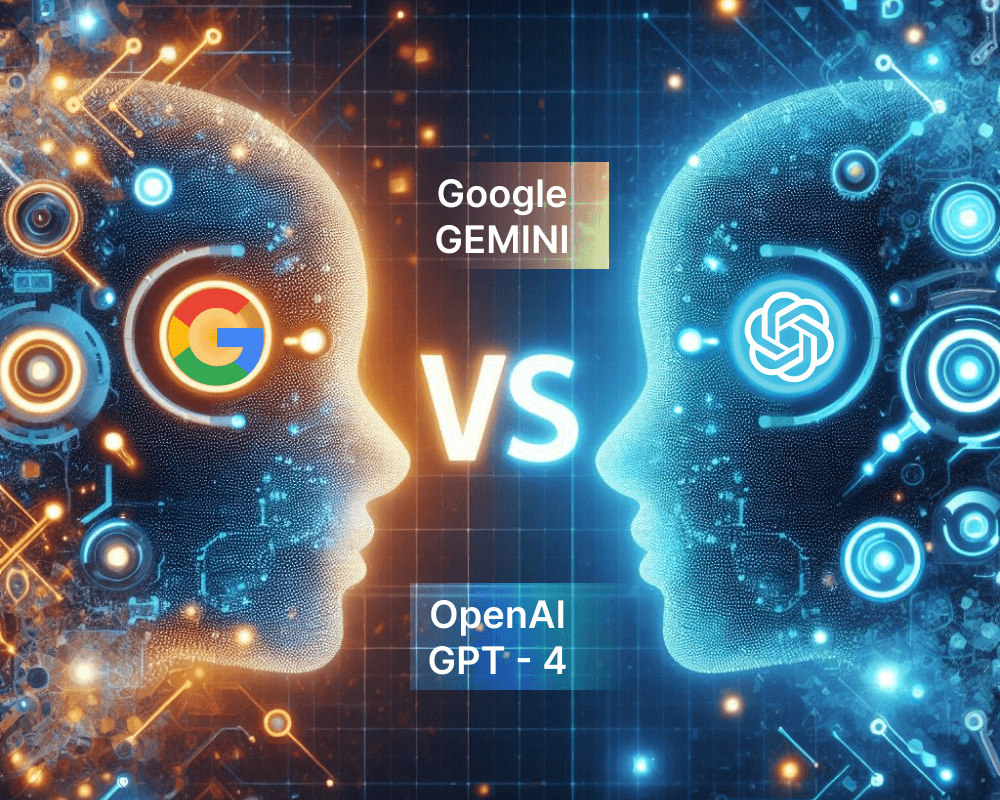December 19, 2023 By: JK Tech
The landscape of artificial intelligence has just witnessed a seismic shift. Google’s Gemini has stormed onto the scene, challenging the long-held dominance of OpenAI’s GPT-4. But in this battle of the titans, who truly reigns supreme? Let’s dissect their strengths, weaknesses, and potential to predict the future of AI.
Multimodal vs. Textual:
- Multimodal Mastery: Gemini boasts a distinct advantage with its multimodality. It effortlessly juggles text, code, and visual interpretation, painting a richer picture than the text-centric GPT-4. Imagine crafting a code snippet within a story or generating visuals inspired by written descriptions – Gemini allows you to paint with all the colors of creativity.
- Reasoning and Problem-Solving: Both models excel in different aspects. Gemini, infused with AlphaGo’s logic, tackles complex tasks like logistics optimization and scientific analysis with impressive skill. GPT-4 shines in areas like factual comprehension and long-form creative writing, showcasing its deep understanding of text and language nuances.
Revolutionizing Domains:
- Healthcare: Gemini’s multimodality could power AI-powered medical assistants that interpret scan data and images alongside doctor notes, offering more comprehensive diagnoses. GPT-4’s language mastery could personalize care plans and even generate patient education materials.
- Education: Both models hold immense potential. Gemini could adapt learning modules based on individual strengths and weaknesses, while GPT-4 could personalize feedback and generate engaging educational content tailored to students’ learning styles.
- Business & Industry: From predicting market trends to streamlining workflows, both models offer game-changing possibilities. Gemini’s reasoning prowess could optimize complex operations, while GPT-4’s language skills could revolutionize marketing and customer service interactions.
Understanding the Differences:
- Focus: Gemini shines in multimodality and reasoning, while GPT excels in text-based tasks and creative writing.
- Size and power: Gemini offers a range of models for different needs, while GPT focuses on larger, more powerful models.
- Openness: GPT-Neo opens doors for wider experimentation and community collaboration, while Gemini models remain under Google’s control.
Challenges and Ethical Dilemmas:
Both models face similar challenges. Biases within their training data can lead to unfair outcomes, and questions of transparency and control remain crucial. Moreover, their immense power demands responsible development and deployment to ensure ethical use and prevent potential misuse.
The Collaborative Future:
Ultimately, neither model should be seen as a solitary ruler, but rather as powerful tools in a collaborative future. We must learn from both Gemini and GPT-4, harnessing their unique strengths to shape a future where AI serves as a partner, not a competitor, to human intelligence.
So, who wins the crown? The answer is nuanced. Each model excels in different areas, and true progress lies in harnessing their unique strengths and fostering collaborative development. The real victory lies in shaping a future where AI, be it Gemini, GPT-4, or their successors, becomes a force for good, empowering us to solve our most pressing challenges and build a brighter tomorrow.



